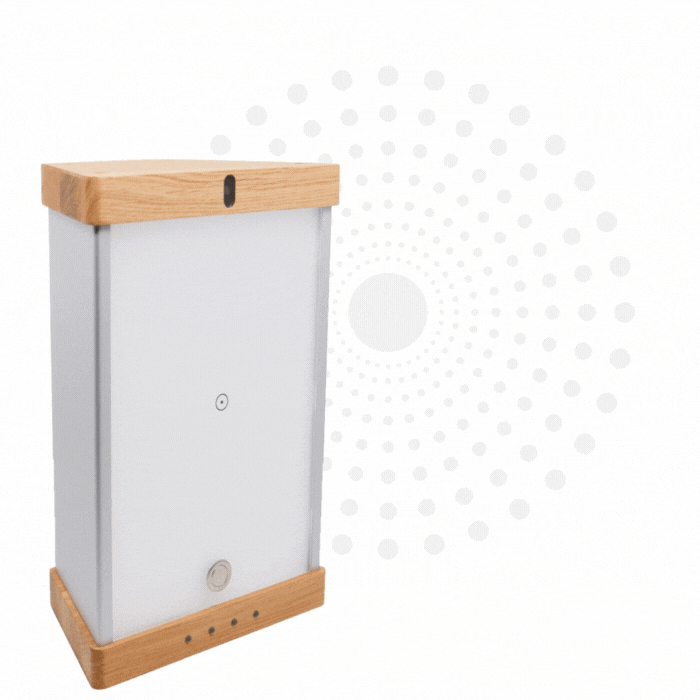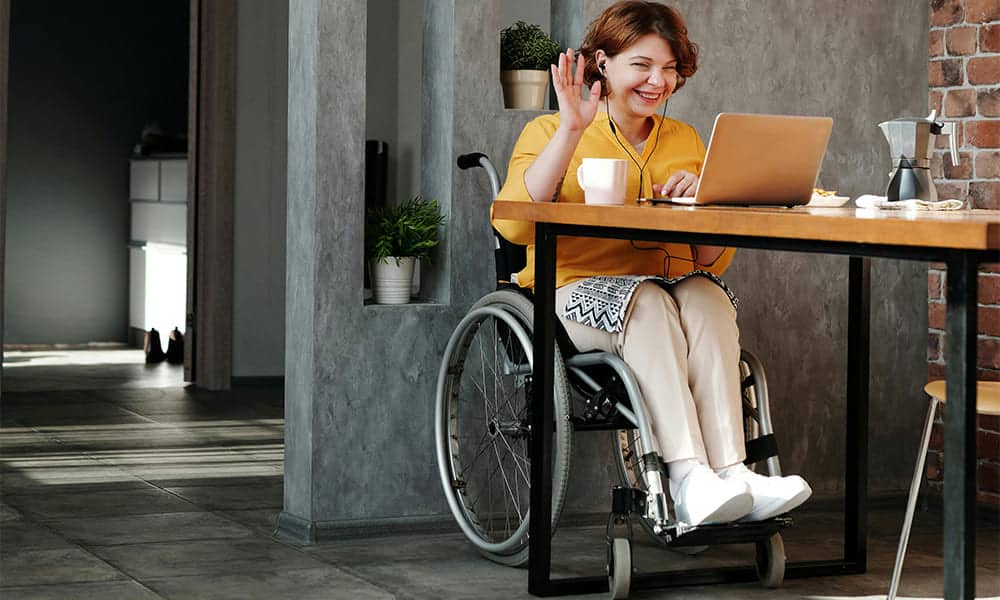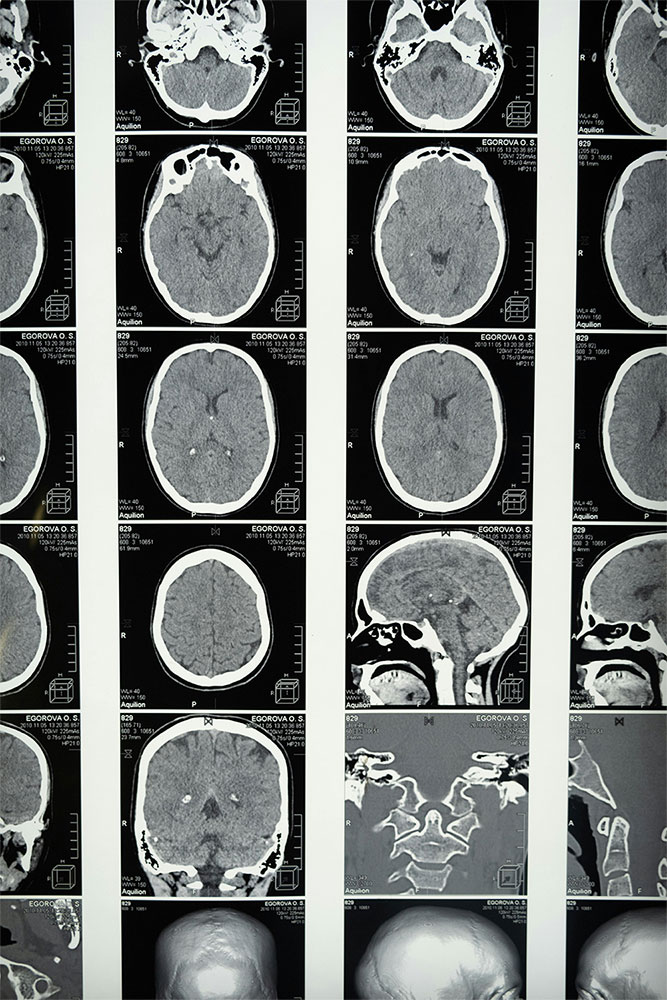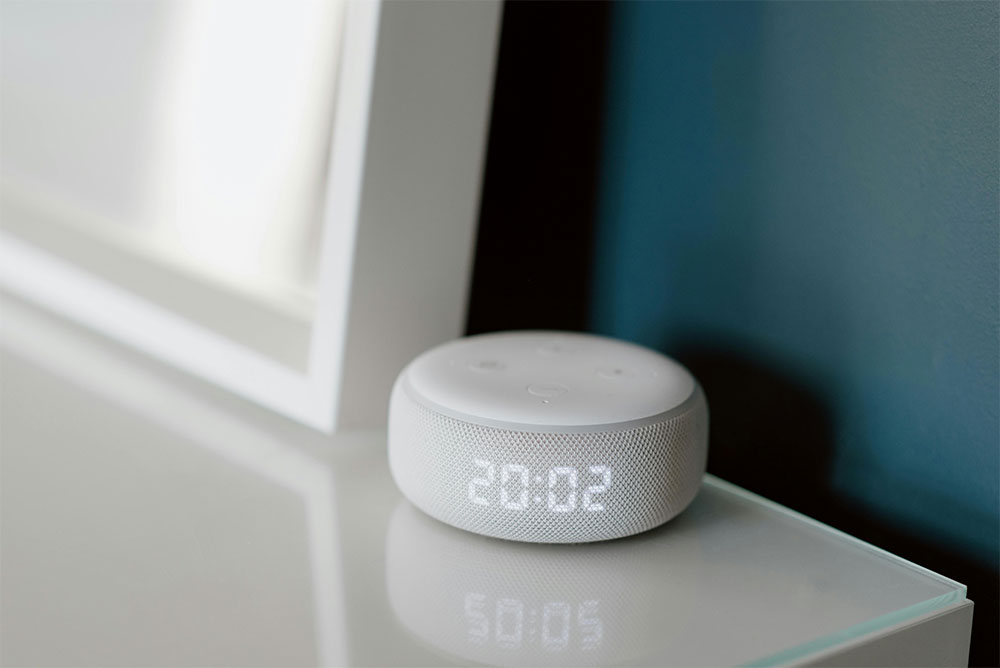In this article, we will explore mild cognitive impairment vs dementia, clarifying differences, progression, and treatment options. We will also learn about the progression and reversibility of both MCI and dementia.

Christopher Ravn
Key Takeaways
1. While both MCI and dementia involve cognitive decline, MCI is a milder condition that doesn't significantly interfere with daily life, while dementia is more severe and progressive.
2. Early detection and lifestyle interventions like diet and exercise can potentially reverse or slow down MCI progression to dementia.
3. Emotional and psychological support are crucial for individuals diagnosed with MCI to cope with the uncertainty and potential for progression to dementia.
Table of Contents
1. Clarifying The Differences Between Mild Cognitive Impairment (MCI) Vs Dementia
2. What Is The Main Difference Between MCI and Dementia?
3. Is Mild Cognitive Impairment A Stage Of Dementia?
4. How Long Does It Take For Mild Cognitive Impairment To Become Dementia?
5. What Symptoms Are Most Common In Patients With MCI?
6. How Is Mild Cognitive Impairment Diagnosed And Managed Compared To Dementia?
7. Compared To Dementia, What Is The General Treatment For Mild Cognitive Impairment?
8. Can You Prevent MCI From Progressing To Dementia? (
9. Can Anxiety Cause MCI? MCI Vs. Dementia Psychological Aspects
10. Does MCI Cause Anger More Compared To Dementia?
11. Frequently Asked Questions About Mild Cognitive Impairment Vs Dementia
Clarifying The Differences Between Mild Cognitive Impairment (MCI) Vs Dementia
The difference between Mild Cognitive Impairment (MCI) and dementia is that both of them affect cognitive functions but differ in their progression, severity, and underlying causes.
MCI shows a decline in cognitive abilities, which include memory, thinking, and problem-solving skills. This occurs as a person grows older and faces issues performing daily activities. Dementia, on the other hand, is a more severe condition that shows a decline in cognitive function, which includes judgment, memory, language, and problem-solving skills.
The difference between the two is that MCI is milder and not as severe as dementia when it comes to daily functions. The progress of MCI is in the beginning stages, whereas dementia worsens over time. However, MCI may be caused by factors such as lifestyle, genetics, age, and medical conditions that may lead to Alzheimer’s Disease.
The criteria used to differentiate MCI from dementia are based on the severity of cognitive impairment. That is, MCI is seen as a milder decline and dementia is a more severe decline. Clinical evaluation, including cognitive and neuropsychological assessments, is important to differentiate MCI from dementia.
What Is An Example Of A Mild Cognitive Impairment?
An example of a mild cognitive decline can be seen when a person in their 60s who used to be good at remembering details and appointments starts to forget things. They begin to have issues remembering names, names of new people, and even movies that they have watched. Some issues that can be seen are when they have issues finding the words or with planning and organization in their daily tasks.
What Is The Main Difference Between MCI and Dementia?
The difference between MCI and dementia is that MCI shows a slight but noticeable change in one’s cognitive abilities and its symptoms are not that prominent to interfere with one’s daily activities such as cooking and driving. Those who have MCI can still function independently, and it can be caused by issues such as sleep disorders, medication side effects, and other medical conditions. With MCI, the condition may remain as it is or improves over time. However, some may progress to dementia.
Dementia, on the other hand, has a more prominent cognitive decline, which includes memory, thinking, and communication skills. These symptoms are severe enough to affect daily life. Dementia patients need help managing their daily lives and they may lose their autonomy. This is because dementia worsens over time and can be seen in cognitive, emotional, and social decline.
The key diagnostic features that differentiate MCI from dementia are that MCI does not interfere with daily activities like dementia and is milder compared to dementia.
Is Mild Cognitive Impairment A Stage Of Dementia?
There has been debate over whether MCI should be considered an early-stage dementia or a separate condition. As MCI may eventually progress into dementia, some studies have stated that at least 15% of people with MCI progress into dementia within a timeframe of a year. They share similar traits where memory, attention, and executive functions have been imported. Both MCI and dementia patients show traces of amyloid plaques and neurofibrillary tangles.
However, there is research that states MCI should be classified as a separate category because many people remain stable or some might revert back to their normal selves. To add on, MCI may be triggered by factors such as depression, vascular disease, and the side effects of medication, whereas dementia is a neurodegenerative disease.
How Long Does It Take For Mild Cognitive Impairment To Become Dementia?
Some studies have indicated that some MCI patients develop dementia within a year, while others remain stable. Some cases indicate that MCIs remain stable over several years and show no decline in their cognitive function. Some cases have indicated that MCI does progress into dementia over a percentile of 7.5–20% a year.
Factors that influence progression and reversibility are older age factors, underlying causes of MCI such as depression, Alzheimer’s Disease, and other vascular diseases; genetic factors such as APOE4 that increase the risk of dementia; and lifestyle choices such as a lack of exercise, social and cognitive stimulation.
There have been incidences where MCI has been stabilized and reversed because of early detection and lifestyle changes such as taking on a Mediterranean diet, exercising, and understanding levels of cognitive impairment. Medications such as cholinesterase inhibitors may help stabilize cognitive function in MCI patients when combined with cognitive training programs such as memory exercises.
How Often Does MCI Progress To Dementia?
There is no certain percentile for how often MCI progresses to dementia. However, there have been studies that state that the rate of progression from MCI to dimension is 12% in the general population and 15% in those who are 65 or older.
It is crucial to understand that the rate of MCI progression to dementia is not automatic and can differ. There have been cases where MCI has reversed and the issues have been addressed. However, there are some cases where MCI has progressed to dementia.

Lifestyle Factors Influencing The Progression Of MCI and Dementia
Lifestyle choices affect the progression of MCI and dementia. Diet and exercise play a huge role in slowing cognitive decline and maintaining brain health. The impact of different diets on brain health has been shown to positively affect cognitive health. For instance, the Mediterranean diet, which is rich in vegetables, fruits, whole grains, fish, olive oil, and nuts, has gathered attention for reducing the risk of cognitive decline and dementia. This is because the diet has healthy fats, antioxidants, and anti-inflammatory compounds that may protect brain cells and promote neuronal links.
To add on, having regular exercise will help cognitive and physical health and music therapy for dementia. By engaging in physical health, you will improve blood flow to the brain, generate new neurons, and reduce neuroplasticity. This helps the brain adapt and reorganize.
Examples of exercises that are beneficial for cognitive health are aerobic exercise, strength training, balance and coordination, and mind-body exercises such as yoga and tai chi. It is also to learn sensory activities for dementia patients.
Can You Reverse Mild Cognitive Decline?
Though there is no cure for MCI, there has been research that shows the possibility of reversing or slowing down the progression through lifestyle changes, medication, and other interventions. Several factors can reverse MCI, such as improving sleep disorders, treating medical conditions such as depression and sleep apnea, stopping or adjusting medication, engaging in exercise, and following a healthy diet such as the Mediterranean diet.
We Believe Prioritizing Brain Health Enhances Your Quality Of Life
Get to know our team, our mission and how our EVY LIGHT® can provide you and your loved ones with a fuller life, letting you breathe a little easier.
What Symptoms Are Most Common In Patients With MCI?
The most common symptoms in patients with MCI are memory lapses such as not remembering names or conversations, struggling to find the right words, being disorganized, trouble with planning and decision-making, issues understanding words and writing, trouble with spatial awareness or navigation, slowness, and issues with identifying smells.
While there are common symptoms between MCI and dementia, they are different in terms of severity; MCI is milder than dementia, the progression of MCI is slower, and there are significant changes in personality such as agitation and mood swings when it comes to dementia.
How Is Mild Cognitive Impairment Diagnosed And Managed Compared To Dementia?
MCI is diagnosed using clinical evaluations and testing, which is also similar to diagnosing dementia patients. Diagnostics normally involves checking the patient’s medical history, conducting a series of cognitive tests, using clinical evaluation to assess cognitive abilities, and using MRI and CT scans to rule out other cognitive issues.
MCI is managed by incorporating lifestyle changes such as exercise, social engagement to help build cognitive reserve, cognitive stimulation such as puzzles, reading, learning new sleep, getting essential sleep, and partaking in a healthy diet rich in fruits, omega-3 fatty acids, and vegetables that help support brain health. Medical treatments are also utilized, such as donepezil and galantamine, which are cholinesterase inhibitors, and focusing on diagnostic tests such as the mini-mental state examination (MMSE), Montreal cognitive assessment (MoCA), and neuropsychological tests that help to assess memory, language, and problem-solving skills.
Compared To Dementia, What Is The General Treatment For Mild Cognitive Impairment?
Compared to dementia, the general treatment for MCI is about managing its symptoms and finding ways to slow down the decline while improving daily functioning. Though it is stated that there are no FDA-approved drugs for MCI, let us have a look at some pharmacological and non-pharmacological treatments.
Medicines that may be used to manage symptoms are donepezil, which is a cholinesterase inhibitor to help with cognitive improvement, and antidepressants to help those with depression and anxiety. However, it is important to note that this education may not be effective in slowing cognitive decline and may have side effects. Non-pharmacological treatments, on the other hand, focus on engaging in cognitive training and exercises such as puzzles, games, and learning new skills; physical exercises such as mini-aerobics; social engagement to stay active and reduce the feelings of being isolated; and getting at least 7-9 hours of sleep.
Some preventive measures to look at are practicing stress-reducing techniques like meditation and yoga, engaging in socially stimulating and mental activities, and working on health conditions such as diabetes, hypertension, and depression.
Can You Prevent MCI From Progressing To Dementia?
Though MCI may be a precursor to dementia, the progression is not determinant or automatic. Hence, some research suggests that by having a healthy lifestyle, one would be able to delay the progression from MCI to dementia. This is done by having regular exercise to reduce the risk of cognitive decline, partaking in a Mediterranean diet that helps to reduce the risk of cognitive decline, managing vascular risk factors such as cholesterol, high blood pressure, and diabetes, and engaging in tai chi, yoga, and other meditative exercises. Some may even want to engage in mentally stimulating activities such as learning new skills and working on crossword puzzles.
There are several studies that have shown efficacy in preventing MCI dementia. A study indicated that a combination of exercise and a healthy diet delayed the progression from MCI to dementia.

Enhance your brain performance through the power of light.
Comfortable and easy to use 40Hz light therapy to support and improve your brain function.
View Our LightCan Anxiety Cause MCI? MCI Vs. Dementia Psychological Aspects
Anxiety may cause the development of Mild Cognitive Impairment (MCI) which can be seen as a decline in cognitive abilities such as thinking skills and memory. There have been studies that have pointed out that those with MCI tend to experience anxiety, depression, and other emotional issues that may worsen cognitive decline.
The emotional impact of an MCI diagnosis is that it can be seen in patients and their families. That is, uncertainty and ambiguity around MCI can lead to fear about the future, depression, frustration, and a loss of sense of identity.
The coping mechanisms when it comes to the emotional and psychological effects of an MCI diagnosis are to talk to a therapist or a support group about your concerns, stay active and engage in physical and mental activities, focus on sleep and healthy eating habits and educate yourself about the treatment options for MCI. Support can be found through the national organization that provides adequate resources, the Alzheimer’s Association, therapists and counselors, and online support groups. It is also important to learn how to talk to someone with cognitive impairment.
Does MCI Cause Anger More Compared To Dementia?
Emotional issues like anger are common in MCI patients. Other emotions, like agitation, anxiety, and depression, are also prevalent in MCI patients. This is because MCI patients may experience cognitive decline, which brings up feelings of loss of control that trigger their anger. Patients may also have issues trying to regulate their emotions, a sudden increase in neuroticism, and other medical conditions such as anxiety and sleep disorders.
Learn What Others Have Experienced with EVY Light
See how others have achieved a sharper mind by activating their gamma brainwaves in combination with maintaining a healthy lifestyle.
Frequently Asked Questions About Mild Cognitive Impairment Vs Dementia
What Are The Main Differences Between MCI vs. Dementia?
The difference between Mild Cognitive Impairment (MCI) and dementia is that both of them affect cognitive functions but differ in their progression, severity, and underlying causes.
MCI shows a decline in cognitive abilities, which include memory, thinking, and problem-solving skills. This occurs as a person grows older and faces issues performing daily activities. Dementia, on the other hand, is a more severe condition that shows a decline in cognitive function, which includes judgment, memory, language, and problem-solving skills.
What Are The Symptoms Of Mild Cognitive Impairment?
The most common symptoms in patients with MCI are memory lapses such as not remembering names or conversations, struggling to find the right words, being disorganized, trouble with planning and decision-making, issues understanding words and writing, trouble with spatial awareness or navigation, slowness, and issues with identifying smells.








































































